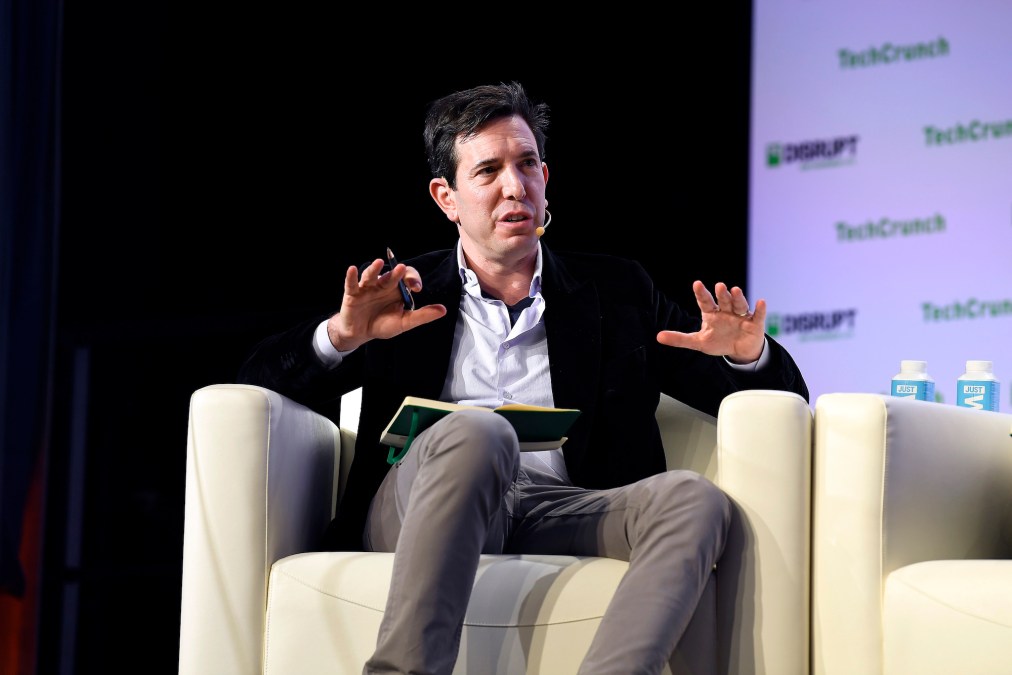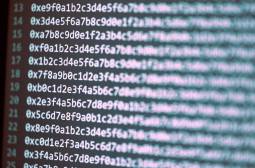Mobile voting booster Bradley Tusk to spend another $10 million to build new system

Bradley Tusk, the political strategist-turned-venture capitalist who’s bankrolled a series of sometimes-controversial pilot projects testing the practicality of voting over an internet-connected mobile device, said Thursday that he plans to spend at least another $10 million on the development of a new voting system that he hopes quiets many of the security concerns his previous efforts have raised.
In an interview with StateScoop, Tusk said that this latest venture will aim to develop a mobile-voting technology that can be used more widely than roughly 20 pilots he’s funded, which have been limited to small groups of voters — typically deployed military service members or people with physical disabilities. Since 2018, a handful of state and local election officials in West Virginia, Utah, Colorado, Delaware and elsewhere partnered with Tusk, who funded their use of programs like Voatz, a mobile app that used blockchain encryption, only to be met by objections from election-security analysts that internet-connected voting is inherently unsafe.
This time, though, Tusk is partnering with some of his one-time critics. Tusk Philanthropies announced that it has enlisted the Open Source Election Technology Institute and Assembly Voting, a Danish software publisher, to develop a new mobile system that features end-to-end ballot verification. That would be a shift from Voatz, whose proprietary code was found by audits and academic reviews to have security flaws.
Tusk picked OSET and Assembly Voting after issuing a request for proposals, respondents to which were evaluated by the ethical-hacking firm Synack. While Tusk said every election in which people used Voatz was independently audited and confirmed to be accurate, he acknowledged that company’s shortcomings.
“There clearly were concerns around,” he said. “For elections with 1,000 voters, Voatz was fine. But I want to be able to handle hundreds of thousands of votes, or millions of votes.”
The announcement also represents a shift in thinking for a group like OSET, which as recently as last October dismissed Tusk’s enthusiasm for mobile voting as a “dangerous distraction.” Now, the organization’s chief operating officer, Gregory Miller, says there may be a place in election infrastructure for ballots delivered digitally.
“The technical challenges to verifiable, accurate, and as-secure-as-possible remote voting are huge, but need to be solved. This project presents the type of research and development our nonprofit is funded to address,” Miller said in a Tusk Philanthropies press release. Miller also told NPR News, which was first to report Tusk’s new investment, that this new venture “sounds like the right approach.”
‘Whatever works’
In addition to working with OSET, Tusk said he’s also prepared to accept recommendations from a panel convened last month at the University of California, Berkeley. That group, which is led by former Homeland Security Secretary Janet Napolitano and includes several election experts and technologist who’ve been critical of mobile voting in the past, plans to issue a report within 12 to 18 months on whether remote ballots have a future among voters writ large.
Tusk’s timeline is a bit sooner — he’d like to have a voting system ready to be tested in time for next year’s elections — but he said he’s agnostic about technology.
“It doesn’t matter to me whether it’s blockchain or cloud,” he said. “Whatever works, they have total freedom to work it out.”
OSET is responsible for developing the ballot-marking system, while Assembly will develop the end-to-end verification. Assembly’s technology has been used extensively in its home country of Denmark, nonprofit organizations and international entities like the European Parliament, but the company has no experience in U.S. elections.
Tusk, who made his fortune from an early investment in Uber, and once told StateScoop that he believed his mobile-voting push was “one of the critical things we can do to save democracy,” said Thursday that events of the past two years have only made the need for more ballot options even greater.
“COVID to a certain extent brought the reality that we live in a world that’s a little precarious and people more so moved their lives online,” he said. “Something that was already clear to you or me pre-COVID I think became a much more obvious proposition.”
‘We have to create a movement’
Tusk acknowledged, though, that there have been institutional barriers to why mobile voting is still a widely critiqued peculiarity rather than a norm.
“The big voting companies weren’t going to invest until they saw demand,” he said. “Officials weren’t going to demand until they saw it’s secure. I don’t have investors. It’s just me.”
Tusk also suggested that beyond funding the development of a new mobile-voting platform, he’s prepared to eventually spend money lobbying lawmakers to become more accepting of the technology and possibly even on ballot initiatives to affirm people’s support.
“There’s three things we have to accomplish over the next 7-10 years,” he said. “We’ve got to build the right technology. We’re going to have to pass a lot of laws in a lot of places. Forget about the people who oppose it now, who are just the cryptographers. It’s going to get a lot of opposition. Which means, three: we have to create a movement.”






